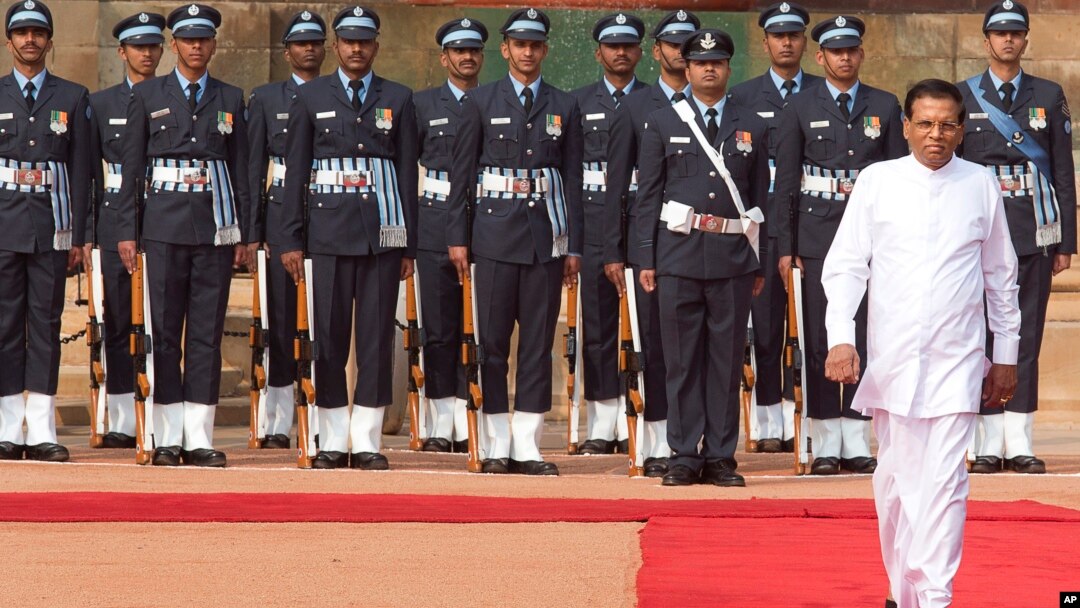Sri Lanka’s promise to cooperate on the issue of wartime atrocities has prompted the United Nations to postpone a report on human rights violations in the final stages of the country’s brutal civil war that ended in 2009. The step has been welcomed in the island country.
The United Nations Human Rights Council says the publication of a report, into the suspected deaths of as many as 40,000 Tamil civilians in the campaign to crush the Tamil Tiger rebels, has been deferred until September to give the new government space to conduct a credible domestic investigation.
The previous government had stonewalled international efforts at an inquiry and barred international investigators from entering the country. That prompted a United States-backed resolution to authorize a U.N. inquiry, which was to be tabled in March.
The U.N. report’s deferral follows an intense campaign by the government of President Maithripala Sirisena, which took power last month. It assured the U.N. that those who have violated human rights will be brought to justice through a domestic probe. But officials say they need time to set up a mechanism to investigate the charges and deliver results.
Political scientist Ahilan Kadirgamar, based in the northern Tamil-dominated Jaffna province, backs the U.N. decision to give time to Sri Lanka’s government to carry out a domestic probe.
“It is really important, however hard it is, that domestic processes are exhausted. Because ultimately the change has to be inside the country. There might be much more attention when there is an international process, but it may not necessarily change the institutions, the human rights culture in the country," Kadirgamar stated. "Given this welcome change of the new regime, we don’t know how far they will go, what will be the outcome, but waiting another six months is not a major difference and this new opportunity should be utilized.”
The U.N. Human Rights Council says the report’s deferral is a “one-time only” step. And U.N. Secretary-General Ban Ki-moon says he will keep a close watch on Sri Lanka’s pledged domestic mechanism.
Rights groups such as Amnesty International say a delay is only justified if it leads to a stronger report and have warned that perpetrators of war crimes should not be allowed to escape punishment.
Neelam Deo at think tank Gateway House in Mumbai says the U.N. also took note of a number of steps taken by new government in recent weeks to promote reconciliation with the minority Tamil community in the wake of the long civil war.
“The fact that the new government has already taken some measures to alleviate the situation in the northern province such as changing the military governor for a civilian official and because there have been signals that they intend to do more to meet the aspirations of the Sri Lankan Tamils for an equitable representation in the country,” Deo noted.
Tamils, whose electoral support helped catapult the new government to power, complain that the previous administration did little to draw them into the political mainstream or improve economic conditions in the north and east which were devastated by a quarter century of civil war.
Kadirgamar said overriding attention on the accountability issue has deflected attention from a range of pressing issues in the Tamil-dominated areas. “Five years after the end of the war, the population in the north and east is going through a severe economic crisis, the crisis of falling incomes, of massive indebtedness and dispossession. And those concerns, which are central to the people here, are not often discussed at these international forums,” Kadirgamar stated.
Some analysts say that international pressure over the issue of wartime atrocities had pushed the previous government closer to China and are urging Western countries to take a more “holistic view” of steps needed to promote reconciliation in the country.


